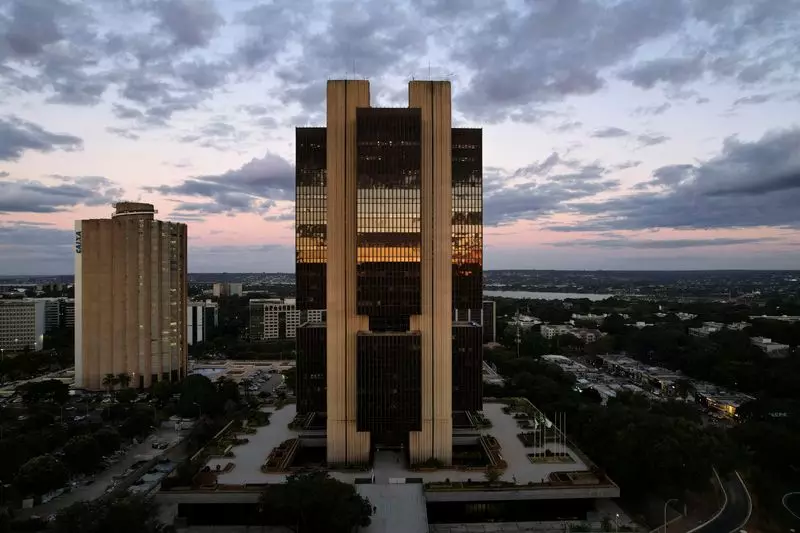Brazil’s currency, the Brazilian real, has recently experienced significant volatility, primarily driven by political tensions and monetary policy debates. The ramifications of these factors have not only influenced market expectations but have also cast a looming shadow over the nation’s economic stability moving forward.
The Brazilian financial markets found themselves in tumultuous waters after President Luiz Inacio Lula da Silva publicly criticized the central bank’s interest rate policies. Lula’s comments, made during an interview with TV Globo, branded the interest rate hikes as “irresponsible,” reflecting his administration’s critical stance against austerity measures. His assertion that the government would “take care of that” suggested possible forthcoming changes in policy that could have a profound impact on the monetary landscape.
The consequences of these statements were immediate, as the Brazilian real opened sharply lower against the U.S. dollar, indicative of market unease regarding Lula’s commitment to fiscal restraint. This sentiment echoes broader concerns about how political decisions may influence the independence of the central bank, notably as Lula prepares to staff the rate-setting committee with his appointees.
Following the initial plunge, the real began to recover some of its losses as the central bank intervened by conducting a significant dollar auction. This resulted in the sale of $1.63 billion, an effort aimed at stabilizing the currency amidst fluctuating investor sentiment. In addition to this, the central bank’s plan to hold a dollar-denominated auction for up to $3 billion underscored its proactive approach to managing the currency’s volatility.
The Brazilian economy, already grappling with a nearly 20% depreciation of its currency this year, has placed immense pressure on the central bank to act decisively. These interventions highlight the delicate balance that the central bank must maintain between responding to political demands and retaining market confidence.
Despite Lula’s claims that Brazil’s inflation rate is under control at around 4%, the reality is that inflation dynamics remain a pressing concern for monetary policymakers. According to central bank surveys of private economists, inflation forecasts have been climbing, with expectations indicating that rates could peak at 14.25% in March of the following year. This reflects the complexities involved in navigating the current economic landscape, where high rates of inflation persist despite substantial rate hikes.
Recent data from November showed that Brazil’s 12-month inflation rate stood at 4.87%, surpassing the central bank’s target range of 1.5% to 4.5%. The central bank’s decision to implement a 100-basis-point rate increase earlier this month aimed to address these inflationary pressures. However, the deteriorating outlook for the fiscal package introduced by Lula’s government has exacerbated doubts about the effectiveness of monetary policy in curbing inflation.
As Lula’s administration prepares for further changes, particularly the impending appointment of a new central bank governor, major questions loom regarding the future direction of Brazil’s economic policy. The expected shift towards a more left-leaning monetary policy could potentially disrupt the delicate balancing act that the central bank must perform to maintain economic stability. Lula’s intent to control interest rates suggests a move away from independent monetary policymaking, raising fears of politicizing financial decisions.
The upcoming appointments to the central bank’s rate-setting committee, which will shift to a 7-2 majority in favor of Lula’s allies, signal that repercussions from recent political events are likely to play a central role in shaping economic policy. This shift may challenge the central bank’s credibility, potentially leading to a lack of investor confidence that could further destabilize the real.
The Brazilian economy is at a crossroads. With political forces vying for control over monetary policy, the balance between robust economic growth and inflation management remains precarious. The outcome of this political maneuvering will undoubtedly have lasting implications for Brazil’s financial markets and economic landscape, with world attention focused on how Lula’s government navigates these choppy waters.

